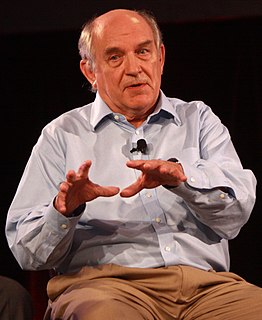A Quote by Maxime Bernier
We cannot be the welfare state of the planet.
Related Quotes
The State, of course, is absolutely indispensable to the preservation of law and order, and the promotion of peace and social cooperation. What is unnecessary and evil, what abridges the liberty and threatens the true welfare of the individual, is the State that has usurped excessive powers and grown beyond its legitimate function - the super-State, the socialist State, the redistributive State, in brief, the ironically misnamed 'Welfare State.'
General welfare is a general condition - maybe sound currency is general welfare, maybe markets, maybe judicial system, maybe a national defense, but this is specific welfare. This justifies the whole welfare state - the military industrial complex, the welfare to foreigners, the welfare state that imprisons our people and impoverishes our people and gives us our recession.
The welfare state corrupts family life. Even Democrats have acknowledged the destructive consequences of the welfare state on the underclass. It has rendered vast numbers of male unnecessary to females, who have looked to the state to support them and their children (and the more children, the more state support) rather than to husbands. In effect, these women took the state as their husband.
Because it is one thing to have free immigration to jobs. It is another thing to have free immigration to welfare. And you cannot have both. If you have a welfare state, if you have a state in which every resident is promises a certain minimal level of income, or a minimum level of subsistence, regardless of whether he works or not, produces it or not. Then it really is an impossible thing.
The greatest obstacle to the welfare state is not greed but private charity that makes the welfare state irrelevant; the greatest obstacle to re-education of children in the name of the collective is allegiance to a higher power. More than that, the greatest obstacle to the state as god is an actual God above the state.
The welfare state is institutionalized crime - 'organized plunder,' as the French economist Frederic Bastiat called it. It systematizes what is intrinsically wrong: forcing some people to support others. The Democrats favor the indefinite expansion of the welfare state, perpetually increasing the ratio of force to freedom in society.
For the longest time, the state discourse in Singapore has eschewed any reference to welfare. Similarly, the state has tended to place meritocracy on a pedestal. Political leadership has tended to frame both issues in the extreme, with welfare representing the bad, and meritocracy representing the good.
A masterly analysis of how political interests, economic circumstances, development strategies, and local history have shaped what are surprisingly different versions of the welfare state across the developing world. The authors combine fine-grained country analyses with intelligent use of data, and explain and extend the theory and literature on the modern welfare state. The book is both scholarly and readable.


































